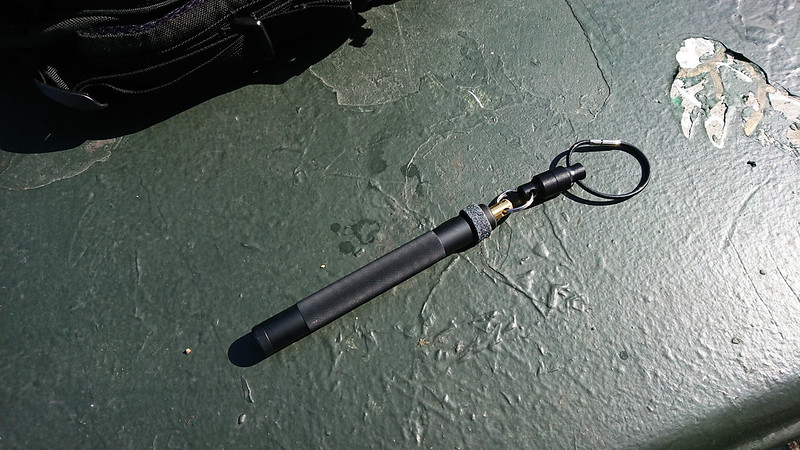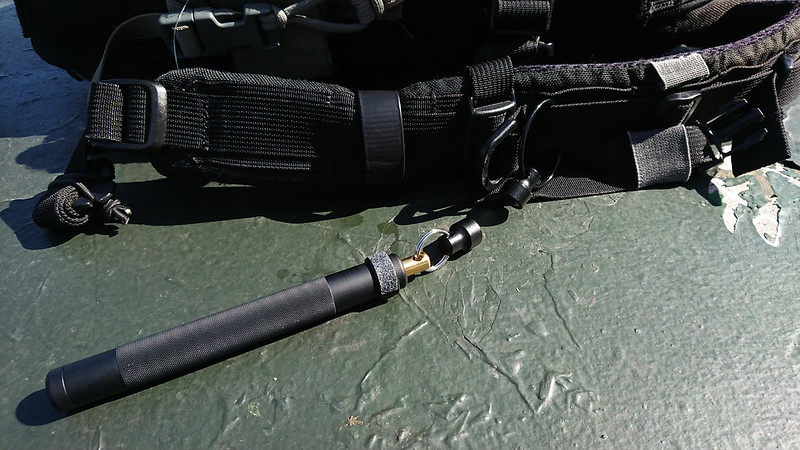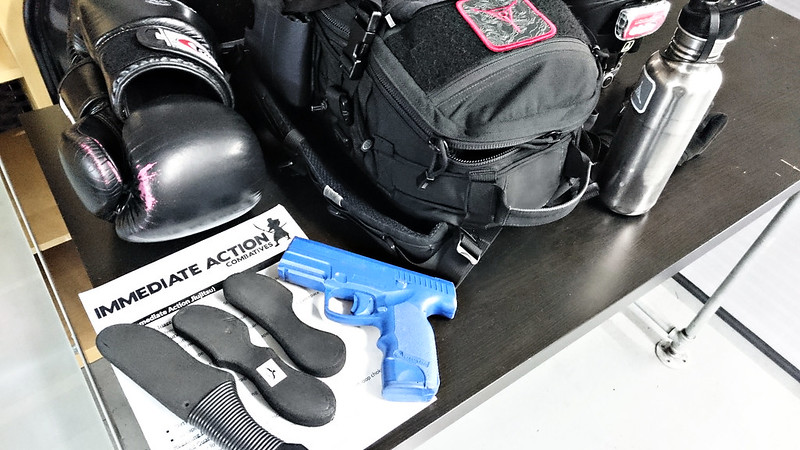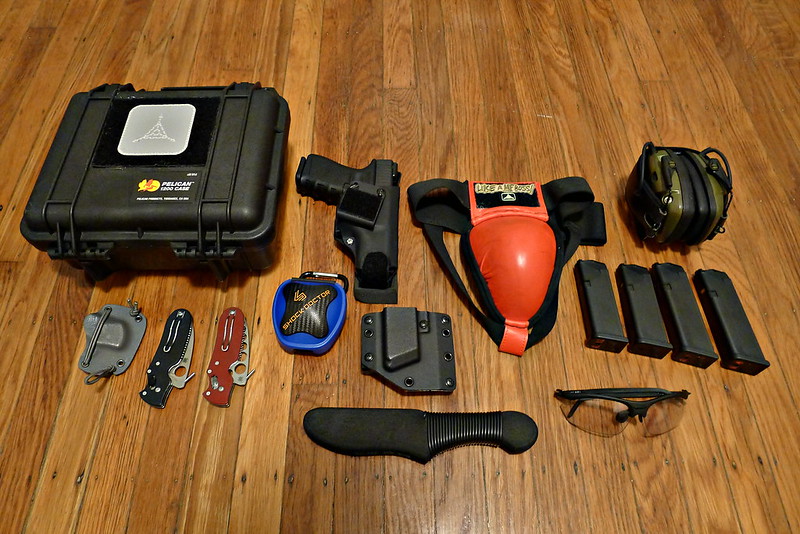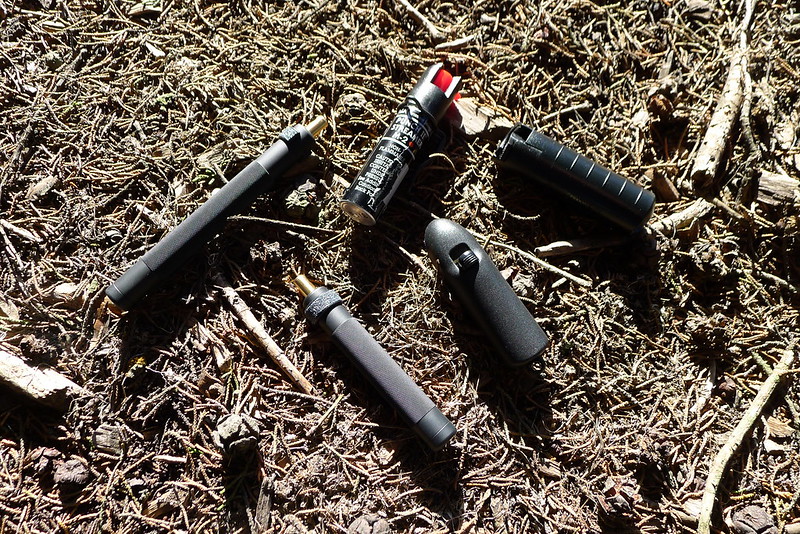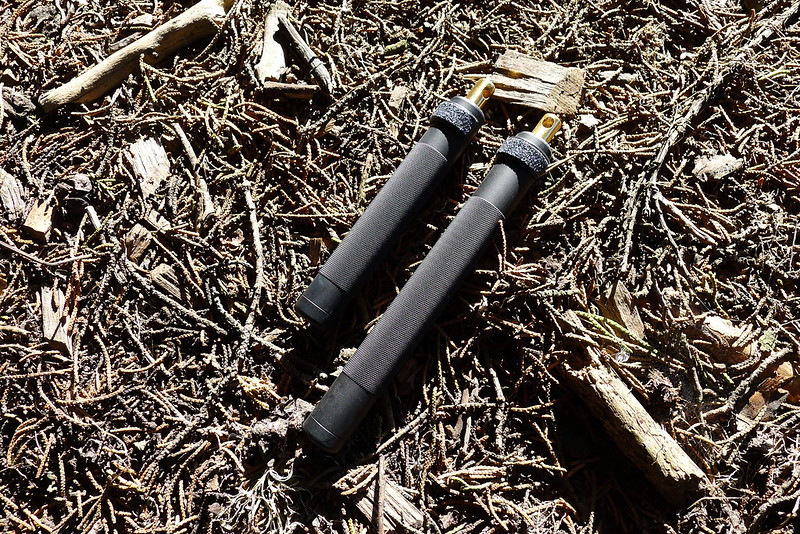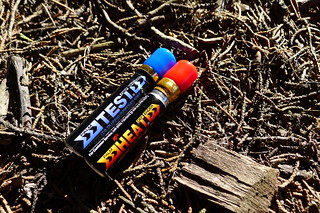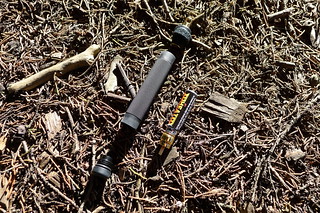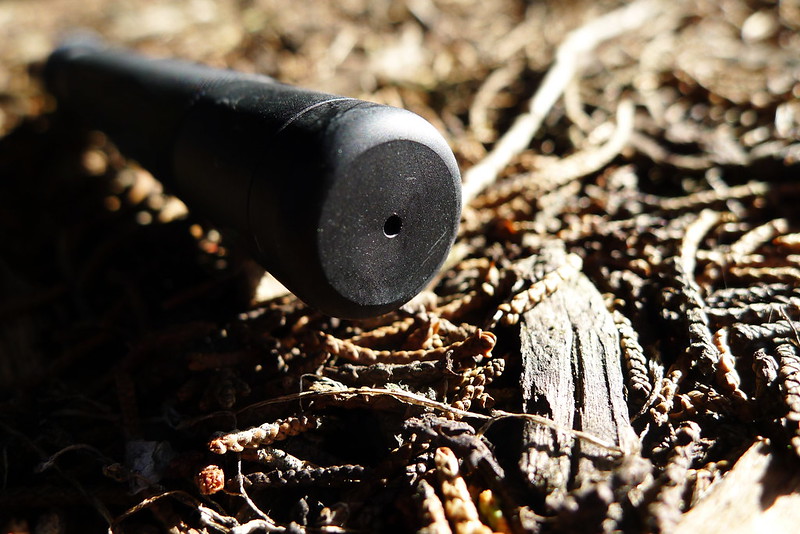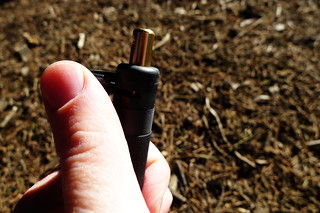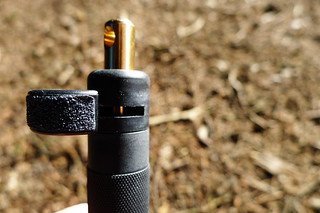Clipped, Hot, and Metro
ASP recently redesigned their Metro Defender OC sprays to include a clip. This is an excellent addition. Some years ago I had tried to find add-on pen clips that may work on my old Defenders, but had no success. Previously I used a Blue Force Gear mag pouch to keep the OC in place on my Raven Pocket Shield. Now I can clip it to the shield directly, for less bulk in the pocket. Much speed, little drag.
ASP is also now including UV dye in their cartridges. This is a good thing. The cartridge itself is identical to the old ones. The new ones with the UV dye will work in the old clipless Defenders. The old cartridges without the UV will work in the newly clipped Defenders.
The way the head and body thread together on the new clipped models is different. A head from an old Defender cannot be attached to the new body, nor can the new head attach to the old body. I have made my peace with this.
The new head does have a logo on it, which is disappointing. Previously the head and body were both sterile. The pocket clip is attached to the body, which means it is below the logo on the head. The clip can be spun around freely, but given the way the safety works, if you were carrying this clipped into a shirt pocket you want the clip positioned such that the logo was facing outward. Anybody looking at you could see the thing in your shirt pocket, which otherwise looks vaguely pen-like, says ASP on it. This is a problem that I will probably eventually solve with tape or nail polish or sandpaper.
The clip (and UV dye) make a good tool better. I have been carrying the new one in my pocket for the past couple months, and have my older clipless models relegated to applications where a clip does not matter.
I still find it useful to apply skateboard grip tape to the safety. One time I tried hockey stick grip tape, but it did not really contribute anything useful. Something with more chutzpa is wanted.
Prior to these design updates, ASP also renamed the product line. The model previously called the “Key” is now the “D2”. This is the one that I like. (I ultimately decided that the smaller one – “D1”, nee “Palm” – didn’t float my boat.)
When I bought my two units in September, I could find no dealers who had updated their product photography to show the clip, nor was it clear what version they were selling. I ordered from ASP directly (and paid their ridiculous shipping fee) to ensure that I got the clip.


